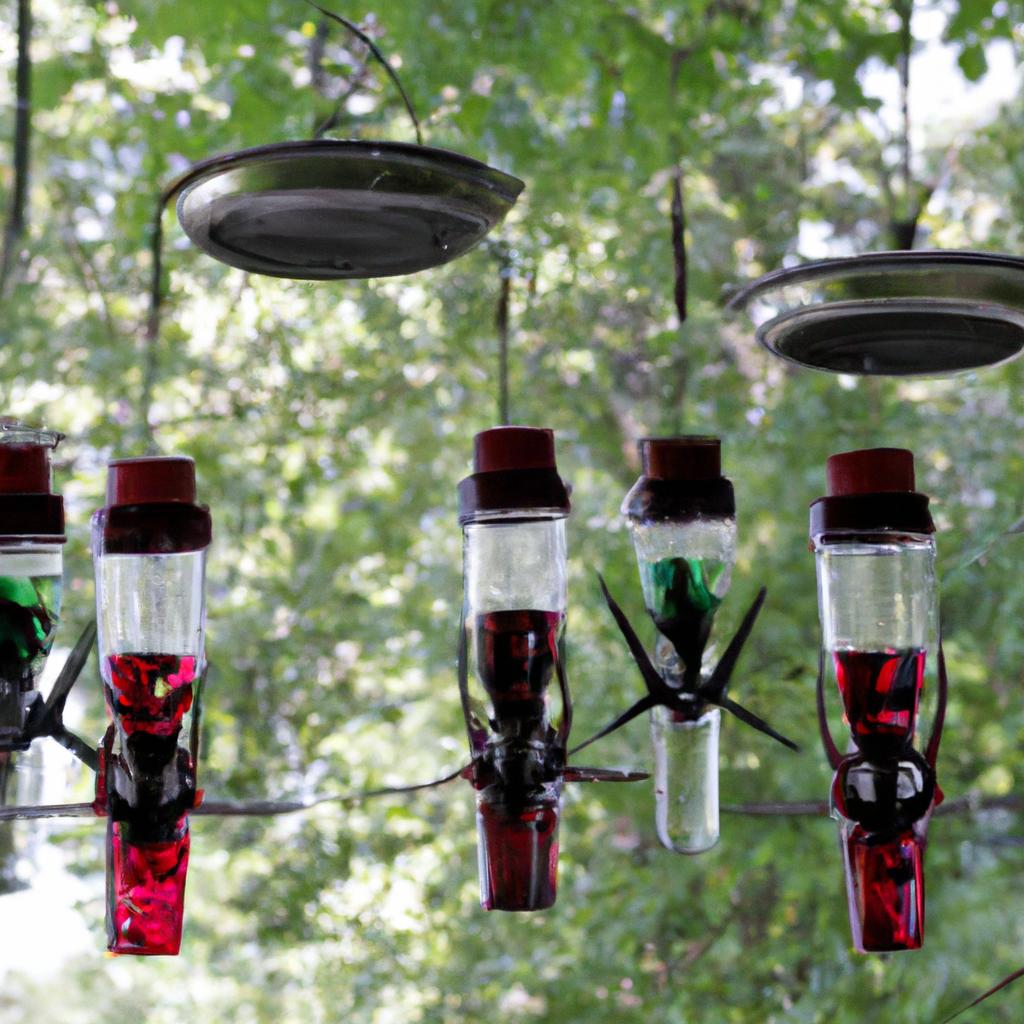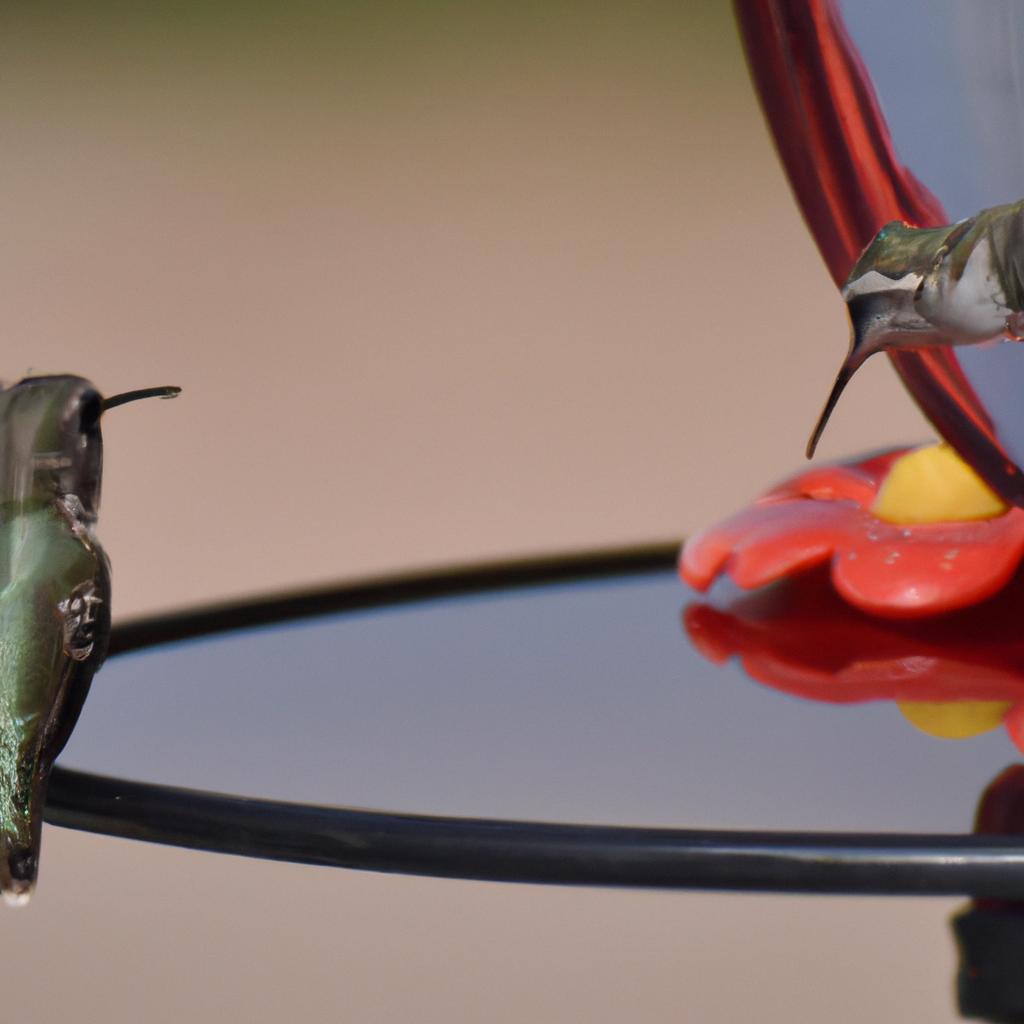If you are a bird lover, you might have experienced the frantic buzzing and chirping of hummingbirds fighting over a single feeder. These tiny birds are known for their territorial behavior, and when they feel threatened, they can become aggressive towards their own kind. If you want to prevent hummingbirds from fighting over feeders, you need to understand their behavior and take some steps to ensure they can feed in peace.
Understanding Hummingbird Behavior

Hummingbirds are territorial birds, and they will fight to defend their feeding areas. They use their bright colors and energetic displays to show dominance and scare away other hummingbirds. However, not all hummingbirds behave aggressively, and it is important to identify the signs of aggression to prevent fights.
One of the most common signs of aggression is chasing behavior, where a hummingbird will chase another away from the feeder. You might also notice hummingbirds hovering in front of each other or making aggressive chirping sounds. These behaviors can escalate into physical fights, with hummingbirds using their sharp beaks to attack each other.
To prevent hummingbirds from fighting over feeders, it is important to understand their territorial nature and take some steps to reduce aggression.
Increase the Number of Feeders

One of the most effective ways to prevent hummingbirds from fighting over feeders is to increase the number of feeders available. When there are multiple feeders, hummingbirds can feed in peace without feeling threatened by other birds.
Place the feeders in different areas of your yard to prevent overcrowding and give each bird their own space to feed. You can also use different types of feeders, such as tube feeders or saucer feeders, to attract different species of hummingbirds.
To make sure the feeders are easily accessible, place them in a shaded area with plenty of perches nearby. Hummingbirds need to rest between flights, and providing perches will allow them to take a break and watch over their feeding area.
By increasing the number of feeders and providing a comfortable feeding space, you can reduce the competition between hummingbirds and prevent fights from breaking out.
Diversify Food Sources
In addition to increasing the number of feeders, diversifying the food sources can also reduce hummingbird aggression. Hummingbirds are not picky eaters, and they can feed on a variety of nectar sources. By providing different types of food, you can attract more hummingbirds to your yard and reduce competition for the feeders.
One way to diversify the food sources is to provide natural nectar sources. Hummingbirds are attracted to the nectar produced by flowers, and planting native flowers in your yard can provide a constant supply of food for the birds. Some popular plants to attract hummingbirds include honeysuckle, salvia, and bee balm.
You can also add fruit or jelly feeders to your yard. Hummingbirds love fruits like oranges, grapes, and bananas, and providing these foods can attract more birds to your yard. You can also make your own jelly or purchase pre-made jelly and place it in a feeder for the birds to enjoy.
Employing Distractions
Another way to prevent hummingbird aggression is to employ distractions. Hummingbirds are easily distracted by shiny objects, and you can use this to your advantage. Place mirrors or shiny objects near the feeders to distract aggressive birds and prevent fights from breaking out.
Providing perches and water sources can also distract hummingbirds and reduce their aggression. Hummingbirds need to rest between flights, and providing perches allows them to take a break and watch over their feeding area. You can also provide a small water source, like a bird bath or fountain, for the birds to drink and bathe in.
In conclusion, preventing hummingbirds from fighting over feeders requires understanding their territorial behavior and taking some steps to reduce aggression. By increasing the number of feeders, diversifying the food sources, and employing distractions, you can create a peaceful feeding environment for these beautiful birds. At BeeKeepinglove.com, we are committed to providing you with the best tips and information on bird care and conservation.
Employing Distractions
Another effective way to prevent hummingbirds from fighting over feeders is to employ distractions. Hummingbirds can become fixated on a single feeder, especially if they are feeling territorial. By introducing some distractions, you can redirect their attention and reduce their aggression.
One way to do this is by using mirrors or shiny objects near the feeders. Hummingbirds are attracted to shiny objects, and placing a small mirror or piece of reflective material near the feeder can distract them and prevent fights. You can also use wind chimes or other decorative items to create a visually stimulating environment that will keep the birds occupied.
Providing perches and water sources can also help to prevent fights. Hummingbirds need to rest between flights, and by providing perches near the feeders, they can take a break and watch over their feeding area. A water source, such as a small fountain or bird bath, can also keep the hummingbirds hydrated and give them another reason to stay in the area.
Conclusion
Hummingbirds are fascinating birds that bring joy and beauty to any yard. However, their territorial behavior can sometimes cause fights over feeding areas. By understanding their behavior and taking some steps to prevent aggression, you can create a peaceful environment for these tiny birds.
To prevent hummingbirds from fighting over feeders, you can increase the number of feeders, diversify food sources, employ distractions, and provide perches and water sources. These strategies will reduce competition between hummingbirds and allow them to feed in peace.
Remember to always enjoy and protect these amazing birds. By providing a safe and welcoming environment for hummingbirds, you can help to preserve their populations and continue to enjoy their beauty for years to come. At BeeKeepinglove.com, we encourage everyone to take care of their local hummingbird populations and do their part in preserving these precious creatures.
